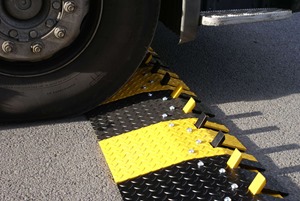 Crime is on the rise, and with a gloomy economic outlook forecast by most, it is widely expected that things will get worse before they get better. Not only do businesses need to be prepared for how their businesses can thrive through difficult market conditions, they also need to consider how they might best protect themselves from an inevitable onset of commercial crime.
Crime is on the rise, and with a gloomy economic outlook forecast by most, it is widely expected that things will get worse before they get better. Not only do businesses need to be prepared for how their businesses can thrive through difficult market conditions, they also need to consider how they might best protect themselves from an inevitable onset of commercial crime.
Whether your business has fallen victim to crime recently, or you are simply looking to prepare for the future, perimeter security is a term that you should aim to familiarise yourself with, as soon as possible. Here we discuss the essential elements of physical security.
Perimeter security explained
The simplest explanation of perimeter security is defined as systems and tools that protect an area. Perimeter security can encompass mechanical or electronic tools, systems, and structures that share a unified goal of shielding physical premises from crime.
Assessing the risks
One of the most common failings in perimeter security that we see is when businesses rely too heavily on particular forms of security. For instance, CCTV cameras, which are often easy to disable or easy to avoid. They may well be useful in identifying a vehicle, or a trespasser, but they do not prevent the crime from happening in the first place in the same way that a more robust form of perimeter security may provide.
To avoid these types of mistakes, it is important to seek out advice from experts with experience in this field. A comprehensive risk assessment will help to identify where your premises may have weaknesses that criminals could exploit. It will also ensure that you are only spending money on tools and systems that you require.
A 360-degree assessment should take into account the nature of your business, your operational needs, and any other constraints or considerations that might affect the level of security required. The end result should be a bespoke set of suggestions that will protect you from criminal activity, and provide peace of mind to both you, your suppliers, and any employees that may work at your site.
Key options for perimeter security
After a risk assessment and feasibility survey has been completed, what type of security solutions might be available to you? Advances in technology mean that there are many new and effective tools available to the modern business owner, however, many older and more established forms of perimeter security remain just as effective. Let’s take a look at some of the options available.
Heavy-duty gates
Often the first object that springs to mind when we think of perimeter security is a gate. Security gates are effective for many reasons. They are useful in controlling pedestrian and vehicular access, but they also send a visual message to opportunistic criminals that a site takes their security needs seriously. A great many types of crime are committed in an opportunistic fashion, and a heavy-duty security gate such as an automatic, bi-folding, cantilever, or manual swing variant can signal that their criminal efforts may be wasted.
Access control equipment
Modern tech has enabled many advancements in the realm of perimeter security, and access control equipment is just one of them. Access control equipment can be utilised both indoors and out and can help you to limit access to specific areas. Tools such as intercoms, keypads, and fingerprint scanners can all help to create a sophisticated protocol plan that matches personnel and visitors with their applicable levels of clearance.
Turnstile security
Another essential tool in the arsenal of perimeter security is the turnstile. Turnstiles are installed in a variety of different situations from corporate buildings, to sports arenas, and can help to control access to only authorised visitors. They also present a significant cost saving as they can reduce the need for security or reception personnel who would otherwise have to manually approve access.
Vehicular management
An important consideration for many businesses is how to restrict vehicular access to their sites. Vehicles typically offer a quick and easy way for criminals to escape after a crime has taken place, and they can also be used as ramming mechanisms to force entry. So businesses must consider how they can prevent this from happening.
Solutions here include speed ramps to restrict speed from oncoming traffic, flow control plates to guide vehicles in specific directions, rising kerbs to shut off entry points, and security posts that can be raised or lowered during different periods of the day. Equally important are barriers which can be both automatic and manual, and can be controlled by security guards, proximity cards, tokens, push buttons, key entry pads, or CCTV systems. An excellent tool in premises where manpower is limited, or the deployment of a manned security guard may not be possible.
Get in touch
Perimeter security is a growing concern for businesses in the current climate, and it can often be hard to know who to turn to. Here at Gateway Automation, we provide you with a free, no-obligation risk assessment, feasibility survey and quotation process free of charge. This means you can be sure that you are spending your money only on areas where it can make the biggest impact.
For more information on any of the security options above, or for further advice on how to protect your business premises from criminals, please contact us here or call us on 01522 682 255.

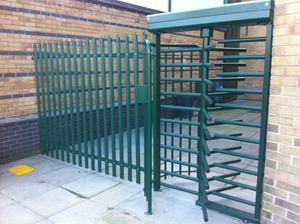 If you’re reading this blog; then the chances are that you have identified perimeter security as an area of your business that needs to be addressed. Like many businesses, you may be concerned about the massive derailment of operations that can result from a serious security breach. If this is the case then read on to discover how perimeter security is fundamental to safeguarding your income, reputation, and peace of mind. And importantly, what questions you should ask when discussing your needs with a provider.
If you’re reading this blog; then the chances are that you have identified perimeter security as an area of your business that needs to be addressed. Like many businesses, you may be concerned about the massive derailment of operations that can result from a serious security breach. If this is the case then read on to discover how perimeter security is fundamental to safeguarding your income, reputation, and peace of mind. And importantly, what questions you should ask when discussing your needs with a provider.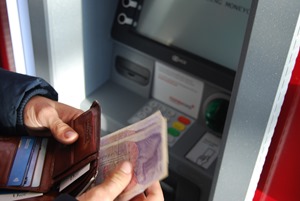 While all types of business premises can benefit from a security review, some sectors particularly need to keep their finger on the pulse. One of those is banking as banks are traditionally a top target for criminals. Here we discuss the physical security for banks to consider.
While all types of business premises can benefit from a security review, some sectors particularly need to keep their finger on the pulse. One of those is banking as banks are traditionally a top target for criminals. Here we discuss the physical security for banks to consider.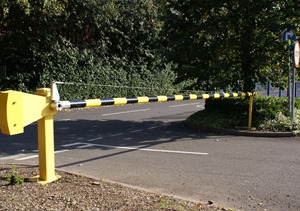 If you’ve decided it’s time to upgrade your security systems at your site, then one of your first ports of call should be perimeter security. One essential component of site security that should always be considered when enquiring about upgrades is a barrier. Here is what to consider when buying barriers.
If you’ve decided it’s time to upgrade your security systems at your site, then one of your first ports of call should be perimeter security. One essential component of site security that should always be considered when enquiring about upgrades is a barrier. Here is what to consider when buying barriers.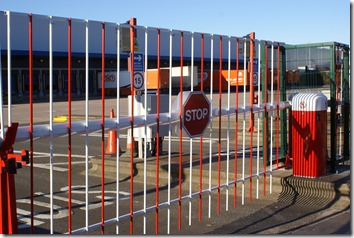 No matter whether you are a small, medium, or large organisation, there is always a place for physical security. Your business is home to your data, your employees and more so you must ensure they are protected as much as possible. Not only does physical security help protect your premises from an in-person attack but it also helps boost the strength of a company’s cybersecurity as well. Here are seven physical security measures every organisation should implement.
No matter whether you are a small, medium, or large organisation, there is always a place for physical security. Your business is home to your data, your employees and more so you must ensure they are protected as much as possible. Not only does physical security help protect your premises from an in-person attack but it also helps boost the strength of a company’s cybersecurity as well. Here are seven physical security measures every organisation should implement. 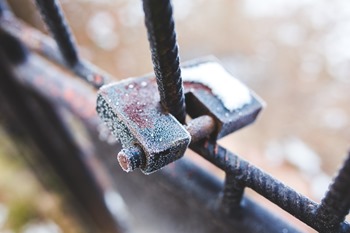 Although security is important all year round, businesses should focus on ensuring they have a specific security plan for the Winter months. Winter months bring unique security concerns that will need to be addressed. Here are eight business securing considerations for Winter.
Although security is important all year round, businesses should focus on ensuring they have a specific security plan for the Winter months. Winter months bring unique security concerns that will need to be addressed. Here are eight business securing considerations for Winter.  The majority of businesses are now more aware than ever that cybersecurity is vital. Cyber attacks are now, unfortunately, more common than ever and companies need to be prepared. However, what some businesses do not know is how detrimental cybersecurity is when it comes to the perimeter and physical security. Businesses need to make sure that their security has a full package, taking both of these things into account. Here, we discuss how cybersecurity can impact physical security.
The majority of businesses are now more aware than ever that cybersecurity is vital. Cyber attacks are now, unfortunately, more common than ever and companies need to be prepared. However, what some businesses do not know is how detrimental cybersecurity is when it comes to the perimeter and physical security. Businesses need to make sure that their security has a full package, taking both of these things into account. Here, we discuss how cybersecurity can impact physical security. 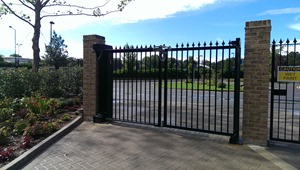 Most businesses need to consider having a security gate installed. Not only does it act as the first line of defence and helps to keep intruders out, it gives staff and business owners peace of mind whilst also creating a great, secure first impression to others whilst also adding value to the business. Before choosing a gate, business owners need to ensure it is the best choice for their business. Here is how to choose the best security gates for your business.
Most businesses need to consider having a security gate installed. Not only does it act as the first line of defence and helps to keep intruders out, it gives staff and business owners peace of mind whilst also creating a great, secure first impression to others whilst also adding value to the business. Before choosing a gate, business owners need to ensure it is the best choice for their business. Here is how to choose the best security gates for your business.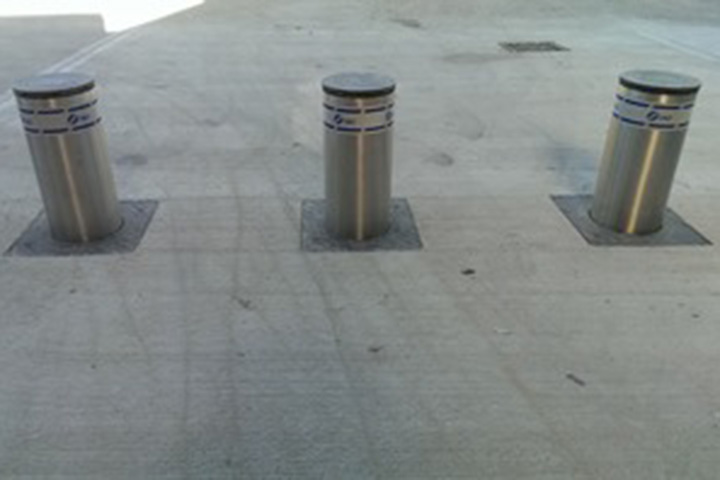

Recent Comments